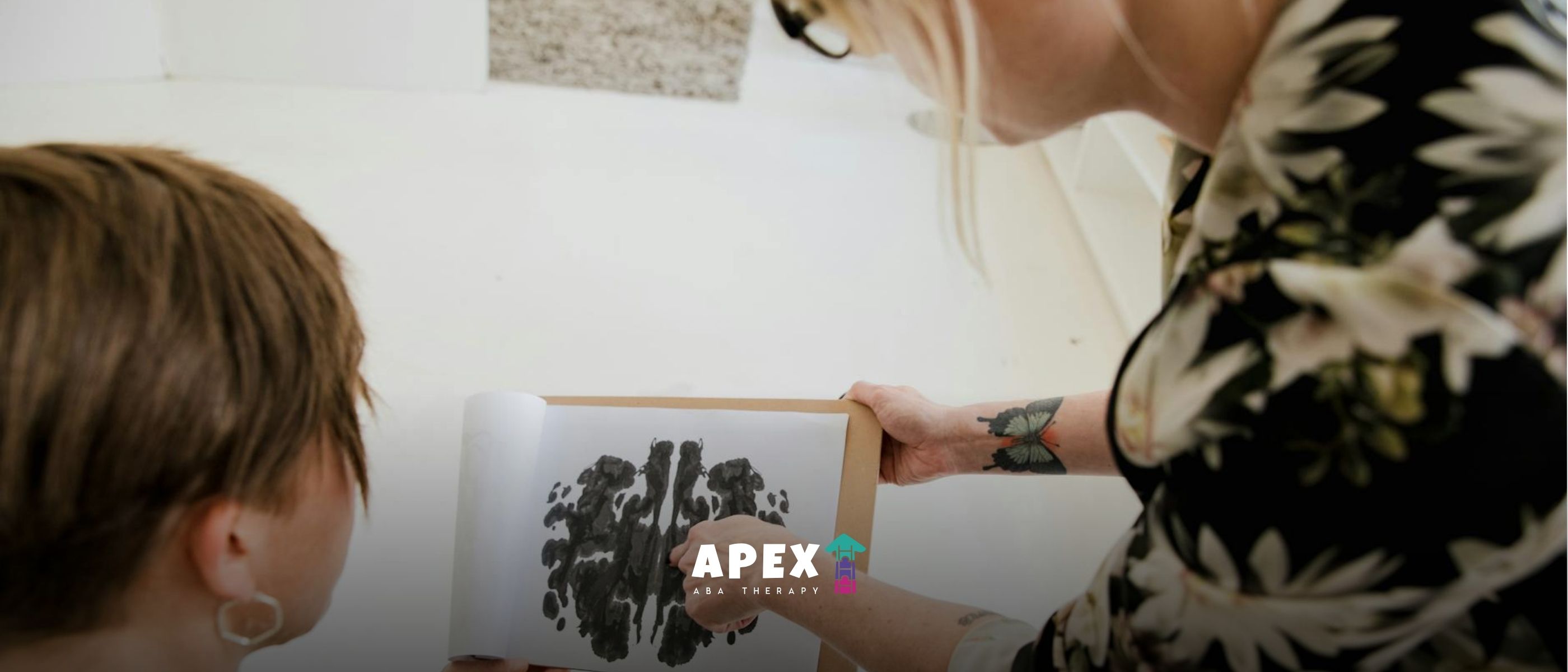Who Can Diagnose Autism?
In this article, we will help you understand the professionals involved in diagnosing autism and what to expect during the diagnosis process.
.jpg)
Who Can Diagnose Autism?
Understanding Autism Diagnosis
When it comes to diagnosing autism in children, early identification is crucial for accessing appropriate interventions and support. Understanding who can diagnose autism is essential for parents seeking answers and guidance for their children's development.

The Importance of Early Diagnosis
Early diagnosis of autism spectrum disorder (ASD) allows for timely intervention and support tailored to the unique needs of the child. With early identification, children with autism can receive targeted therapies and interventions that can significantly improve their developmental outcomes.
Early intervention services, such as applied behavior analysis (ABA) therapy, speech therapy, and occupational therapy, can help children with autism develop essential skills and maximize their potential.

Who Can Diagnose Autism in Children?
Several medical professionals and specialists play a role in the diagnosis of autism in children. The specific diagnostic process may vary depending on the individual, but the following professionals are typically involved in the evaluation and diagnosis of autism:
Seeking a diagnosis for your child involves a collaborative effort between various professionals. It is recommended to consult with your child's pediatrician as the first step, who can then refer you to the appropriate specialists for further evaluation. Remember to ask questions, gather information, and advocate for your child throughout the diagnostic process.
Medical Professionals
When it comes to diagnosing autism in children, several medical professionals play a crucial role in the diagnostic process. These professionals have the expertise and knowledge to assess the developmental milestones, behaviors, and characteristics that are indicative of autism spectrum disorder (ASD).
Let's explore some of the medical professionals involved in diagnosing autism in children: pediatricians, child psychiatrists, developmental pediatricians, and neurologists.
Pediatricians
Pediatricians are often the first point of contact for parents who have concerns about their child's development. These medical doctors specialize in child healthcare and are trained to identify the early signs and symptoms of various conditions, including autism.
While pediatricians may not provide a formal diagnosis of autism, they play a vital role in the initial screening and referral process. They may administer developmental questionnaires, conduct physical examinations, and gather information about the child's developmental history to determine if further evaluation for autism is necessary.
Child Psychiatrists
Child psychiatrists are medical doctors who specialize in diagnosing and treating mental health conditions in children and adolescents. They have expertise in evaluating behavioral and emotional concerns and are trained to recognize the signs of autism.
Child psychiatrists may conduct comprehensive evaluations that involve observing the child's behaviors, conducting interviews with parents or caregivers, and using standardized assessment tools.
They may also collaborate with other professionals to gather a holistic understanding of the child's development. It's important to note that a diagnosis of autism spectrum disorder is typically made by a multidisciplinary team, which may include a child psychiatrist.
Developmental Pediatricians
Developmental pediatricians specialize in the assessment and management of developmental and behavioral conditions in children. They have extensive training in evaluating developmental delays, including those associated with autism spectrum disorder.
Developmental pediatricians employ various tools and assessments to gather information about a child's developmental milestones, social interactions, and communication abilities. They conduct thorough evaluations to determine whether a child meets the criteria for an autism diagnosis.
In some cases, developmental pediatricians may work closely with other professionals, such as speech-language pathologists and occupational therapists, to gather a comprehensive understanding of the child's abilities.
Neurologists
Neurologists are medical doctors who specialize in the diagnosis and treatment of disorders that affect the brain and nervous system. While their primary focus is on neurological conditions, they can also play a role in diagnosing autism.
Neurologists may be involved in the diagnostic process to assess any neurological factors that may be contributing to the child's symptoms. They may conduct neurological examinations, review medical history, and order additional tests, such as brain imaging or genetic testing, to rule out other conditions that may present with similar features to autism.
Collaborating with other professionals, such as developmental pediatricians or child psychiatrists, neurologists contribute their expertise to the comprehensive evaluation of a child's developmental profile.
The involvement of medical professionals, such as pediatricians, child psychiatrists, developmental pediatricians, and neurologists, is crucial in diagnosing autism in children. By working together and considering various aspects of a child's development, these professionals contribute to the accurate identification and understanding of autism spectrum disorder.
Psychologists and Therapists
In the journey of diagnosing autism in children, psychologists and therapists play a crucial role. These professionals possess the expertise to evaluate various aspects of a child's development and behavior, aiding in the diagnostic process. Let's explore the different types of professionals within this category who can contribute to diagnosing autism in children.
Clinical Psychologists
Clinical psychologists are mental health professionals who specialize in assessing and diagnosing psychological disorders, including autism.
They employ standardized assessment tools, observation, and interviews to gather information and evaluate a child's social, emotional, and behavioral functioning. Clinical psychologists often collaborate with other professionals to ensure a comprehensive understanding of the child's needs.
Neuropsychologists
Neuropsychologists are experts in assessing the relationship between brain functions and behavior. They evaluate a child's cognitive abilities, attention, memory, executive functioning, and other neurological aspects that may provide insights into the presence of autism. Neuropsychological assessments, which involve a series of tests and tasks, help in understanding the child's strengths and challenges.
Speech-Language Pathologists
Speech-Language Pathologists (SLPs) focus on communication skills, including language, speech, and social communication. They assess a child's language development, speech production, pragmatics, and social interaction abilities. Since communication difficulties are often associated with autism, SLPs play a vital role in diagnosing and providing interventions for children on the autism spectrum.
To ensure a comprehensive evaluation, these professionals may collaborate with other specialists, such as pediatricians, child psychiatrists, developmental pediatricians, or neurologists. This multidisciplinary approach helps gather different perspectives and expertise to arrive at an accurate diagnosis.
Remember, the diagnostic process for autism involves a comprehensive evaluation encompassing various domains of a child's development. The involvement of psychologists and therapists, along with other professionals, helps provide a holistic understanding of the child's strengths, challenges, and potential diagnosis.
If you're seeking an autism diagnosis for your child, it's essential to reach out to the appropriate professionals who can guide you through the process. Be sure to ask questions, consider different opinions, and advocate for your child's needs.
Multidisciplinary Teams and Diagnostic Centers
In the journey of diagnosing autism in children, multidisciplinary teams and diagnostic centers play a crucial role in providing comprehensive evaluations and assessments.
These specialized teams are equipped with professionals from various disciplines who collaborate to gather and analyze information to determine whether a child meets the criteria for an autism diagnosis. Two primary options for seeking a diagnosis through multidisciplinary teams are autism diagnostic centers and developmental assessment teams.
Autism Diagnostic Centers
Autism diagnostic centers are dedicated facilities that specialize in diagnosing autism spectrum disorder (ASD). These centers typically have a team of professionals with expertise in autism assessment, such as child psychiatrists, psychologists, developmental pediatricians, and speech-language pathologists.
They follow standardized diagnostic protocols and use a combination of assessments, observations, and interviews to evaluate a child's developmental history, behavior, and social communication skills.
The advantage of seeking a diagnosis through an autism diagnostic center is the comprehensive evaluation provided by the multidisciplinary team.
With professionals from various disciplines working together, the evaluation process can be more thorough, ensuring a comprehensive understanding of the child's strengths and challenges. These centers often have access to specialized assessments and resources that can contribute to a more accurate diagnosis.
Developmental Assessment Teams
Developmental assessment teams are another option for obtaining an autism diagnosis. These teams are typically found in hospitals or specialized clinics and consist of professionals from different specialties, such as pediatricians, child psychiatrists, psychologists, and speech-language pathologists.
The team members collaborate to assess a child's development, behavior, and social communication skills using standardized assessment tools and observations.
While the specific composition of developmental assessment teams may vary, the goal remains the same: to provide a comprehensive evaluation that can aid in diagnosing autism. These teams often have expertise in developmental disorders and can offer valuable insights into a child's overall development, allowing for a more accurate diagnosis.
When seeking a diagnosis through multidisciplinary teams, it is important to consider factors such as the expertise of the professionals involved, the availability of specialized assessments, and the resources offered by the center or team. Consulting with your pediatrician or primary care provider can be a good starting point for a referral to these specialized teams.
Remember, the diagnosis process is an important step in understanding and supporting your child. By seeking a diagnosis through multidisciplinary teams and diagnostic centers, you can access a comprehensive evaluation that can guide interventions and support for your child's unique needs.
School-Based Evaluations
In addition to medical professionals and psychologists, school-based evaluations can also play a vital role in the diagnosis of autism in children. Schools provide a unique setting where professionals with expertise in child development and education can assess a child's behavior, social interactions, and academic performance to contribute to the diagnostic process.
School Psychologists
School psychologists are professionals who specialize in assessing and supporting the psychological and educational needs of students. They play a crucial role in the evaluation process for autism spectrum disorder (ASD) within a school setting.
School psychologists collaborate with other professionals, such as teachers, speech-language pathologists, and parents, to gather comprehensive information about a child's development and behavior.
During the evaluation, school psychologists administer various assessments and tests to gather information on the child's cognitive abilities, social skills, and adaptive functioning. They may also conduct interviews and observations to gain a better understanding of the child's behavior in different settings. The insights provided by school psychologists can help contribute to the overall diagnostic assessment.
Special Education Professionals
Special education professionals, including special education teachers and specialists, can also contribute to the evaluation and diagnosis of autism in children. These professionals have expertise in working with students with diverse learning needs and can provide valuable insights into a child's educational performance and individualized learning strategies.
Special education professionals collaborate with other team members to gather information about the child's academic abilities, adaptive skills, and social interactions within the school environment. They may also conduct assessments and observations to identify any specific learning challenges or areas of strength.
The involvement of school psychologists and special education professionals in the diagnostic process can provide a comprehensive evaluation of a child's development, both academically and socially. Their perspective and expertise within the school setting can contribute valuable information to the multidisciplinary assessment team.
It's important to note that while school-based evaluations can contribute to the diagnostic process, a formal diagnosis of autism spectrum disorder (ASD) is typically made by qualified medical professionals or psychologists specializing in autism.
Throughout the diagnostic journey, collaboration between medical professionals, psychologists, and school-based evaluations can lead to a more comprehensive understanding of a child's needs and help guide appropriate interventions and support. Parents should actively participate in the evaluation process, ask questions, and advocate for their child's well-being and educational needs.
Seeking a Diagnosis for Your Child
If you suspect that your child may have autism, seeking a proper diagnosis is an important step towards understanding their needs and accessing appropriate support. The diagnostic process involves a comprehensive evaluation by qualified professionals who specialize in autism diagnosis. Here are the key aspects of seeking a diagnosis for your child.
The Diagnostic Process
The diagnostic process for autism typically involves a thorough assessment conducted by a multidisciplinary team of professionals. This team may include medical professionals, psychologists, therapists, and educators with expertise in diagnosing and supporting individuals with autism.
The process often begins with an initial screening to identify potential red flags and determine whether further evaluation is necessary. If the screening indicates a possibility of autism, a comprehensive evaluation will be conducted. This evaluation may include:
- Detailed interviews with parents or caregivers to gather information about the child's developmental history and behaviors.
- Direct observations of the child's social interactions, communication skills, and repetitive behaviors.
- Assessments conducted by professionals specializing in areas such as speech and language, cognitive abilities, and social-emotional development.
The diagnostic process aims to determine whether the child meets the criteria outlined in the Diagnostic and Statistical Manual of Mental Disorders (DSM-5) published by the American Psychiatric Association. It is important to note that the diagnostic process may vary depending on the healthcare system and the professionals involved.
Questions to Ask and Consider
When seeking a diagnosis for your child, it is essential to ask questions and consider various factors to ensure a thorough evaluation. Here are some questions to ask:
- What professionals will be involved in the evaluation process?
- What assessments will be used, and how will they provide a comprehensive understanding of your child's strengths and challenges?
- How long will the evaluation process take, and what can you expect during each stage?
- What are the qualifications and experience of the professionals conducting the evaluation?
- Will the evaluation consider any additional conditions or co-occurring disorders that may impact your child's development?
By asking these questions, you can gain a better understanding of the diagnostic process and ensure that your child receives a comprehensive evaluation from qualified professionals.
Advocating for Your Child
As a parent, it is important to advocate for your child throughout the diagnostic process. Here are some steps you can take:
- Educate yourself about autism and the diagnostic process to better understand your child's needs.
- Keep a record of your child's behaviors, developmental milestones, and any concerns you may have.
- Be proactive in seeking evaluations and assessments from qualified professionals.
- Communicate openly with the professionals involved, sharing your observations and concerns.
- Ask for clarification if you have any questions about the evaluation process or the results.
- Connect with support groups or organizations that can provide guidance and resources.
Remember, you are an essential advocate for your child. Your knowledge, insights, and involvement can contribute to a more accurate diagnosis and help shape the support and interventions that will benefit your child in the long run.
Seeking a diagnosis for your child is an important step towards understanding their unique strengths and challenges. By engaging in the diagnostic process, asking questions, and advocating for your child, you can ensure that they receive the necessary support to thrive.
Conclusion
If you are concerned that your child may have autism, it’s important to seek a professional diagnosis. There are several professionals who can diagnose autism, including pediatricians, child psychologists, psychiatrists, neurologists, and developmental pediatricians.
The diagnosis process typically involves developmental screening, a diagnostic evaluation, and feedback and recommendations. Remember, early intervention is key to helping children with autism reach their full potential.
Sources
Frequently Asked Questions
.jpg)
Autism And Bed Wetting: Unlocking Solutions
Explore the connection between autism and bedwetting and find practical insights and solutions for parents and caregivers. Discover how understanding and support can make a difference in managing this common challenge for children and individuals on the autism spectrum.

Proven Examples of Smart Goals for Students with Autism
Unlock the potential of students with autism through proven examples of SMART goals. Set them up for success!
.jpg)
What is the Sensory Processing Disorder ICD-10 Code?
If you or someone you know has been diagnosed with Sensory Processing Disorder (SPD), you may have heard of the ICD-10 code. In this article, we'll explain what the SPD ICD-10 code is, what it means, and why it's important.

Understanding Vestibular Stimming in Autism
Demystifying vestibular stimming in autism: Understand the impact, strategies, and support for individuals. Uncover the power of self-regulation through stimming.

Do Amish Kids Get Autism?
Explore the prevalence of autism in Amish children and uncover the factors that may contribute to this phenomenon. Delve into the unique characteristics of Amish communities and their impact on autism rates.

Breaking Barriers: Free Sensory Toys for Autism That Make a Difference
Discover life-changing free sensory toys for autism! Unlock the power of sensory play for children with autism.

Famous People Thriving with Autism or Aspergers Syndrome
Discover the extraordinary journeys of famous people thriving with autism and Asperger's syndrome. Unveil the inspiring stories of icons who break stereotypes.

IEP Goals for Autism: Ultimate Guide
Unlock the potential: Constructing meaningful IEP goals for autism to support your child's growth and development. Discover strategies and examples!

Young Celebrities with Autism
Discover inspiring young celebrities with autism and their journeys in entertainment and advocacy.
.jpg)
Autism Hand Posturing: Causes, Types, and Management
Autism hand posturing refers to repetitive and often purposeless movements or postures of the hands and fingers seen in individuals with autism. These movements range from simple hand flapping to more complex finger twisting and tapping.

Distinguishing ADHD vs Autism Stimming
ADHD stimming vs autism stimming: Discover the motivations and characteristics behind these behaviors in individuals.

Addressing Rigid Thinking in Autism
Unlocking flexibility in autism! Discover strategies, therapy, and tools to address rigid thinking for a brighter future.

DSM 6 Release Date Revealed
Unlock the future with DSM-6! Discover the release date and anticipated changes in the mental health landscape.

Why Do Autistic People Rock?
Uncover insights with empathy, exploring the diverse ways rocking serves as a coping mechanism and sensory regulation for individuals on the autism spectrum. Join us in celebrating the beauty of neurodiversity, fostering understanding and appreciation for this distinctive aspect of autistic experience.

Signs Your Toddler Is Not Autistic
Discover reassuring signs that your toddler may not be autistic in this human-centered guide. Explore the joy of your child's unique developmental journey, celebrating their social engagement and communication skills.
.jpg)
Facial Features & Physical Characteristics Of Autism
Some researchers believe that these physical characteristics are related to the underlying neurological differences in individuals with autism.

The Three Main Causes of Autism: Exploring Genetics, Environment, and Brain Differences
Autism is influenced by genetics, environmental factors, and brain differences. Learn how these three causes contribute to the development of the condition.

What are the Common Behaviors of Autism?
Autism behaviors can vary widely. Learn about the most common traits, from social difficulties to sensory sensitivities, and how ABA therapy can support progress.

What Age is Too Late for ABA Therapy?
It’s never too late to start ABA therapy. Discover how children, teens, and adults can still make meaningful progress with personalized ABA support.

Is In-Home ABA the Right Fit for Your Child? Here’s What You Need to Know
In-home ABA therapy offers a tailored approach to support your child’s development. Learn how it can improve key skills like communication, social interaction, and more.

How Families Can Make ABA Therapy a Positive and Successful Experience
Learn how families can ensure ABA therapy is a positive, successful experience. Discover tips for involvement, consistency, and support to make ABA effective.

Can a Child Have Autism and Still Talk Normally?
Can a Child Have Autism and Still Talk Normally?

What Are the Red Flags for Autism in a 2-Year-Old?
Autism Red Flags in 2-Year-Old Children | Apex ABA

Is Autism a Lifelong Condition?
Is Autism a Lifelong Condition? Understanding The Journey

Best Age to Start ABA Therapy & What Parents Should Know
Best Age to Begin ABA Therapy for Children | Apex ABA

What’s the Difference Between High-Functioning Autism and Asperger’s?
Difference Between High-Functioning Autism and Asperger’s

ABA Therapy Enhancing Social Skills: A Key to Improved Communication and Interaction for Children with Autism
How ABA Therapy Helps Children Build Social Skills

Misconceptions About ABA Therapy: Clearing Up the Myths
Common Misconceptions About ABA Therapy | Apex ABA

What Does It Mean to Be “On the Spectrum”?
What Does It Mean to Be on the Autism Spectrum? | Apex ABA

Understanding the Power of Functional Behavior Assessment ABA
Effective ABA Techniques for Behavioral Intervention

Discover How ABA Helps ADHD in Your Child’s Life
How ABA Therapy Helps Children with ADHD | Apex ABA

Life-Changing ABA Therapy Case Studies You Need to Know
Real Success Stories from ABA Therapy Journeys | Apex ABA

Can Children “Outgrow” Autism?
Can Children Outgrow Autism? Understanding the Facts

Is Autism a Mental Illness or a Developmental Disorder?
Mental Illness or Developmental Disorder Explained

Is Autism More Common in Boys Than Girls?
Autism in Boys vs Girls: What the Research Reveals

What is the Difference Between Autism and Sensory Processing Disorder?
Autism vs Sensory Processing Disorder Differences | Apex ABA

What's the Difference Between Autism and Speech Delay?
Autism vs Speech Delay & Key Differences Explained | Apex

ABA Therapy in North Carolina: A Complete Guide for Families
Learn everything about ABA therapy in North Carolina, including services, costs, insurance coverage, and how to choose the best ABA provider in North Carolina.

ABA Therapy vs Preschool: Making the Right Choice Explained
Learn the key differences between ABA therapy and preschool to help you choose the best option for supporting your child’s early learning and development.

Which Personality Type Is Most Likely to Be Autistic?
Which Personality Type Is Most Likely to Be Autistic? | Apex ABA

Why Consistency Matters: What Happens If ABA Therapy Ends Prematurely
What Happens If ABA Therapy Is Stopped Too Early? | Apex ABA

How Can You Gain an Autistic Person’s Attention? Tips for Meaningful Connection
How Can You Gain an Autistic Person’s Attention?

Sensory Sensitivity and Sixth Sense: What Autism Research Shows
Do Autistic People Have Sixth Sense? | Apex ABA

What Happens If Autism Is Left Untreated?
Can Autism Get Worse If Untreated? | Apex ABA

What Not To Do With An Autistic Child: Avoid These 10 Mistakes
What Not To Do With An Autistic Child? | Apex ABA

Coping with Regressive Autism: Tips for Parents
What is Regressive Autism? | Apex ABA

Do Autistic Kids Live with Parents Forever? Here’s the Reality
Do autistic kids live with parents forever? Discover the facts about independence and living arrangements in autism with expert-backed insights.

Red Flags in ABA Therapy: What Parents Must Watch For
What are the red flags in ABA therapy? Learn to identify warning signs for safe, effective autism treatment in this blog.

Can You Go from Level 3 Autism to Level 1? Is It Possible?
Can you go from level 3 autism to level 1? Learn about progress, therapy, and support options with expert help from Apex ABA.

Autism vs Introversion: How to Tell the Difference
Is it autism or just introversion? Learn the key differences and signs with expert insights from Apex ABA.

ABA for Managing Transitions: Tips to Ease Change for Kids
Learn how ABA for managing transitions helps children with autism handle change smoothly.

Understanding the 7 Dimensions of ABA for Better Outcomes
Discover the 7 Dimensions of ABA and how they can lead to better outcomes.

5 Unique Autistic Love Languages You Should Know About
Discover the 5 unique autistic love languages that can enhance your relationships.

Transforming Futures: Improving Lives of Kids with Autism
Discover how innovative strategies are focused on improving lives of kids with autism.

ABA Therapy Techniques for Addressing Repetitive Behaviors in Autism
Harnessing ABA Strategies to Tackle Repetitive Behaviors in Autism

The Role of ABA Therapy in Enhancing Communication Skills
Transforming Communication for Children with Autism Through ABA Therapy

How ABA Therapy Supports Effective Communication in Nonverbal Children
Unlocking Speech Through ABA: Transformative Paths for Nonverbal Children

How to Help Your Child Transfer Skills Learned in ABA Therapy to Real Life
Unlocking Real-World Success for Children in ABA Therapy

How ABA Therapy Helps Children Develop Better Organizational Skills
Empowering Children with ABA Therapy for Enhanced Organizational Skills

The Importance of Creating a Structured Routine in ABA Therapy
How Structured Routines Transform ABA Therapy for Autism

The Role of ABA Therapy in Developing Conflict Resolution Skills
How ABA Therapy Transforms Conflict Resolution Competence

The Importance of Generalization in ABA Therapy for Autism
Unraveling the Role of Generalization in Enhancing ABA Therapy Outcomes

Why ABA Therapy is Crucial for Parents of Children with Autism
The Transformative Impact of ABA Therapy on Families with Autistic Children

How to Involve Parents in the ABA Therapy Process
Maximize Parent Engagement in ABA Therapy for Better Outcomes

What are the Core Principles of ABA Therapy?
Exploring the Cornerstones of Applied Behavior Analysis

Why Communication is Key in ABA Therapy for Autism
The Crucial Role of Communication in ABA Therapy for Autism

Why ABA Therapy Works for Children with Autism Regardless of Severity
Effective ABA Interventions for All Levels of Autism

Why It’s Important to Maintain a Balanced Approach to ABA Therapy
Balancing Effectiveness and Ethics in ABA Therapy

The Role of ABA Therapy in Developing Adaptive Behavior Skills
Exploring How ABA Therapy Transforms Lives

The Benefits of Combining ABA Therapy with Speech Therapy
Maximizing Development with Integrated Therapy Approaches

What to Expect During an ABA Therapy Session
Demystifying ABA Therapy Sessions: A Comprehensive Overview

How ABA Therapy Enhances Cognitive Functioning in Children with Autism
Exploring the Influence of Applied Behavior Analysis on Autism Cognition

How ABA Therapy Helps Children with Autism with Transitions Between Activities
Easing Transitions for Children with Autism: The Role of ABA Therapy

How to Foster Cooperation Between Parents and Therapists in ABA Therapy
Building Effective Partnerships in ABA Therapy

The Role of Positive Reinforcement in ABA Therapy
Exploring the Impact of Positive Reinforcement in Modern ABA Therapy

Why ABA Therapy is Effective for Children of All Ages
Understanding the Reach and Impact of ABA Therapy Across Age Groups

How to Support Your Child’s Emotional Growth with ABA Therapy
Harnessing ABA Therapy for Enhancing Emotional Development in Children with Autism

The Role of ABA Therapy in Enhancing Peer Relationships for Children with Autism
Harnessing ABA Therapy to Boost Social Connections Among Autistic Children

How to Overcome Common Challenges in ABA Therapy
Navigating Hurdles in ABA Therapy: Strategies and Solutions

How to Manage Behavioral Expectations with ABA Therapy
Understanding Applied Behavior Analysis in Behavioral Management

How ABA Therapy Promotes Emotional Regulation in Children with Autism
Unlocking Emotional Balance: ABA Therapy's Role in Autism

How ABA Therapy Improves Social Skills in Children with Autism
Harnessing ABA Therapy to Enhance Social Competency in Autistic Children

The Role of ABA Therapy in Classroom Success for Children with Autism
Harnessing ABA for Academic and Social Growth in Autism

The Importance of Evaluating and Revising ABA Therapy Goals Regularly
Regular Evaluations: The Cornerstone of ABA Therapy Success

How to Choose the Right ABA Therapy Program for Your Child
Finding the Perfect ABA Therapy Fit for Your Child

The Role of Behavior Analysts in Implementing ABA Therapy
Understanding the Vital Contributions of Behavior Analysts in ABA Therapy

The Role of RBTs (Registered Behavior Technicians) in ABA Therapy
A Closer Look at the Essential Work of RBTs in ABA Therapy

What Makes ABA Therapy Effective for Different Learning Styles?
Unraveling the Flexibility and Effectiveness of ABA Therapy

Understanding the Importance of Data Collection in ABA Therapy
The Role of Data in Shaping Effective ABA Therapy

How ABA Therapy Helps with Toilet Training in Children with Autism
Unlocking Independence: ABA's Role in Autism Toilet Training

The Importance of Encouraging Natural Play in ABA Therapy
Revolutionizing ABA Therapy with Natural Play

How to Make the Most of ABA Therapy at Home
Enhancing ABA Therapy Practices Within Your Home

How to Make ABA Therapy Fun and Engaging for Children with Autism
Transforming ABA Therapy into a Fun Learning Journey

The Role of ABA Therapy in Addressing Verbal and Nonverbal Communication in Autism
Enhancing Communication Skills in Autism Through ABA Therapy

Understanding the Role of Family in ABA Therapy for Autism
The Crucial Impact of Family Engagement in Autism Therapy

How to Handle Setbacks and Challenges in ABA Therapy
Navigating Difficulties and Setbacks in ABA Therapy for Children

How ABA Therapy Can Help Children Build Stronger Relationships with Peers
Unpacking the Influence of ABA Therapy on Peer Relationships in Children

Understanding the Concept of Shaping in ABA Therapy
Demystifying Shaping Techniques in Applied Behavior Analysis

How ABA Therapy Enhances Independent Living Skills in Autism
Unlocking Independence: The Role of ABA Therapy in Autism
.jpg)
90+ Reading Statistics, Facts and Demographics
In this article, we will dive into 60 reading statistics that shed light on the importance of reading and its impact on different aspects of life.



